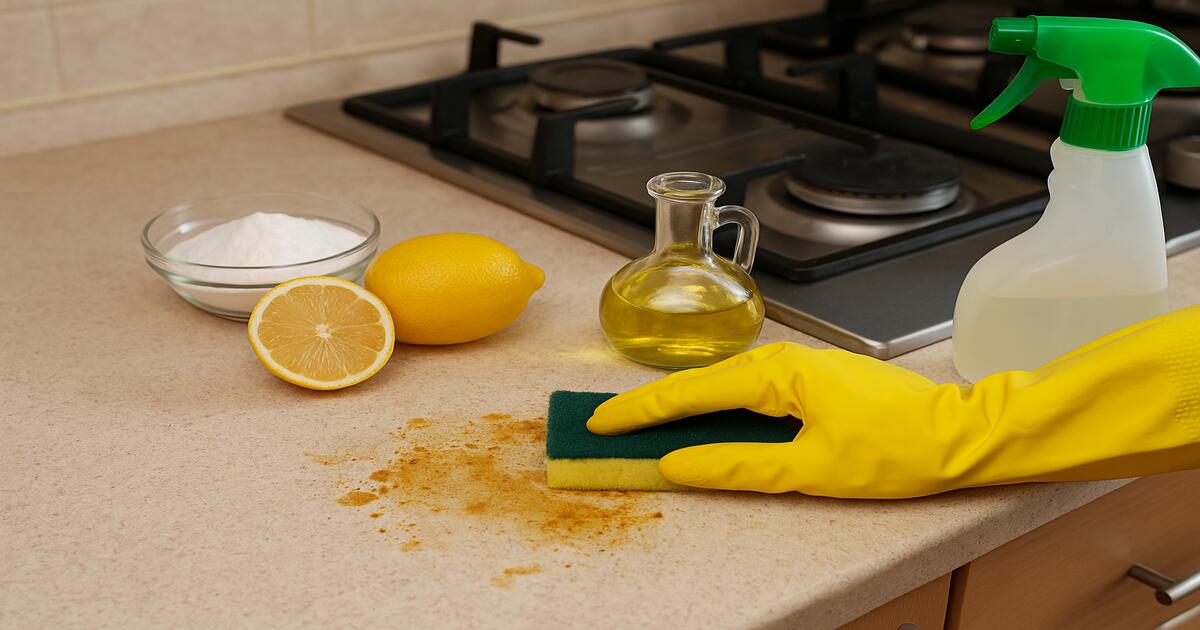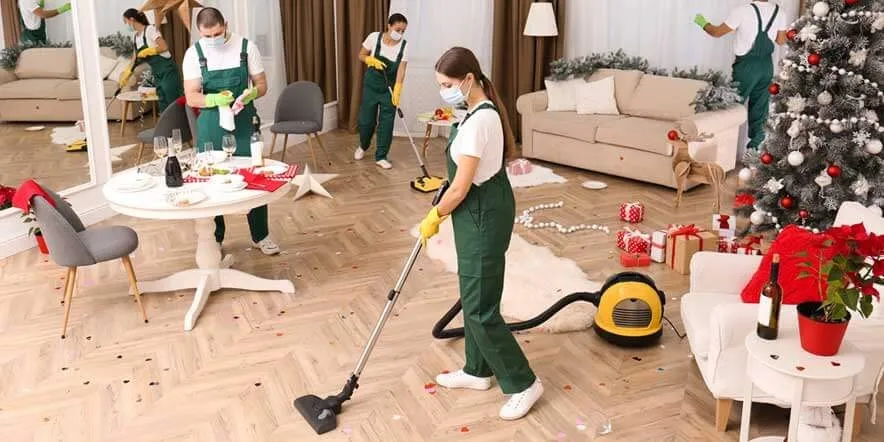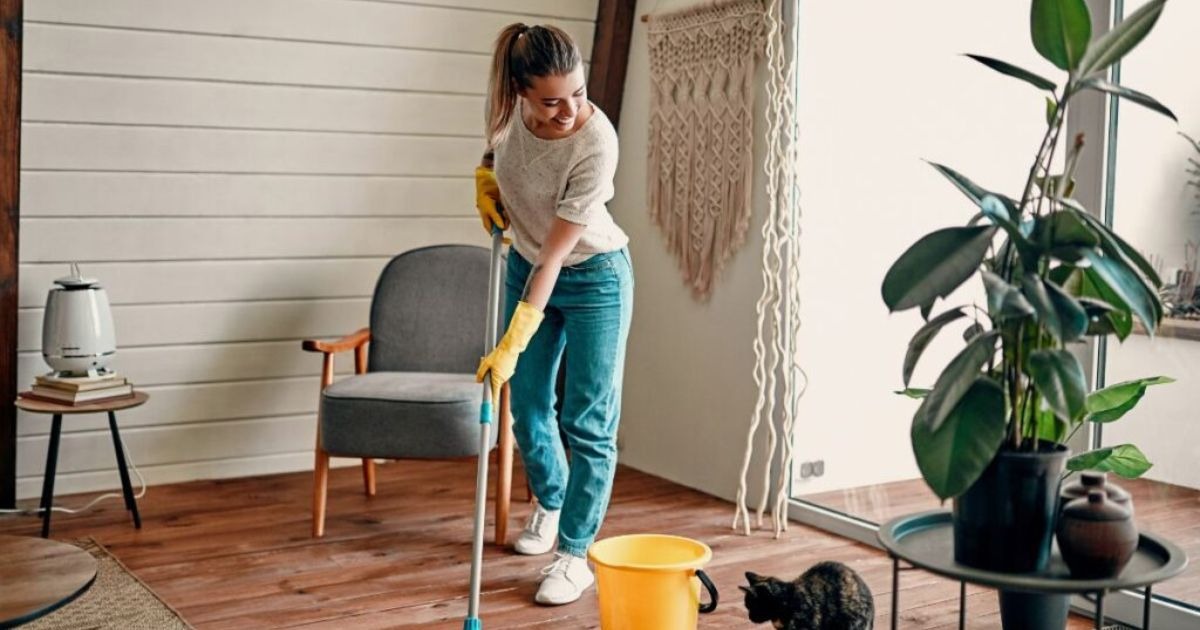
Who doesn’t love fried food? The grease, on the other hand, poses a great irritation. Slowly building and hardening on kitchen surfaces, this layer grows with time and becomes difficult to scrub off. It just destroys the overall charm of your cooking area, so it’s best to clean it instantly upon observation. However, cleaning does not warrant an expenditure on market-grade commercial degreasers. They contain harmful chemicals and are prohibitively expensive. Instead, opt for household items that work well against grease, are cheap to buy, and are completely safe to use (Australian chemical safety guidelines). If you happen to be the tenant moving out of an apartment, an unclean kitchen may result in severe deductions from your security deposit. If you decide that you are going to do it yourself, some knowledge about safe cleaning chemical alternatives comes in handy. Continue reading to learn more about green cleaning grease on kitchen surfaces.
Seven Natural Methods for Cleaning Kitchen Surfaces of Grease
Fortunately, one can rid the grease naturally and non-toxically, with ingredients found in the home. The following are seven natural ways of getting rid of grease from kitchen counters and appliances. In such a situation, hiring Brisbane Bond Cleaners professionals who offer eco-friendly bond cleaning in Brisbane would be advisable.
1. Using Vinegar to Remove Grease
For the removal of very stubborn grease stains, which are usually found on stovetops and inside ovens, white vinegar should be used. Spray on the stain and leave to soak for five to ten minutes at least. Vinegar is not good at cutting grease from alkali materials because the acetic acid present in it tends to soften the tough grease stains. After that, the grease can be removed using a soft sponge and light rubbing. Applying the vinegar while the surface is still hot will yield the greatest results. For example, have the vinegar sprayed inside the oven just after using it.
2. Removing Grease with Salt and Alcohol
This is another magnificent way to clean grease off kitchen surfaces. A generous sprinkle of salt is rubbed into the surface as the clean cloth is soaked in Isopropyl Alcohol and rubbed gently over the spot. The rough surface of the salt serves to scrub out the grease with ease.
Using this method entails sprinkling a prolific amount of salt right onto the greasy spot. Next, immerse a clean sponge or rag in isopropyl alcohol and use it to rub the greasy surface in a circular motion. Grease will dissolve and be lifted off if you do this. Also, the surface is left immaculate after the grease has been removed by wiping it off with a damp towel.
3. Degreasing with Castile and Lemon Juice
Castile is a biodegradable soap made with plants, so it is safe on almost all surfaces. When combined with lemon juice, we get a powerful yet gentle detergent that acts perfectly as a degreaser, carrying pleasant fresh aromas with it.
The Natural Degreasing Solution:
- Combine 1 cup Castile Soap; 1 cup warm water; 3 teaspoons freshly squeezed lemon juice into a spray bottle.
- Spray over greasy kitchen areas, such as countertops, sinks, hobs, tiled surfaces, etc.
- Wipe off with a clean cloth or sponge.
- Use as a general cleaner.
4. Dishwashing Soap and Warm Water
Nothing else can beat dish soap in going after the grease. Most dish soaps are mild degreasers that break down oils and grease beautifully!
How to use:
- Add a couple of drops of dish soap to warm water.
- Pour the mixture into a spray bottle or Bowl.
- Spray with soapy water and apply to grease spots.
- Use a non-scratch sponge and scrub; then rinse well with clean water.
This method would be used for regular or exit cleaning of the kitchen surfaces, such as stone countertops, tiles, and sinks.
5. Eliminate Grease Using Baking Soda and Water
Another thing is that, being alkaline in nature, baking soda is one of the best materials one may consider using for grease removal from kitchen surfaces. Greasy deposits can easily be removed with it without being abrasive toward your hands and even the surface. Make a paste with baking soda and water, apply the paste directly on the greasy spots on any kitchen surface, allow several hours of drying, and then wipe away with a moist cloth. DIY methods should be avoided after an end-of-tenancy cleaning; rather, hire professional services for bond cleaning in Brisbane- they will protect your bond money.
6. Use Flour to Clean Grease
Grease stains are easier to deal with when they are fresh. The more time you give to the stain, the more stubborn it remains, making it eventually almost impossible to remove. Ideally, grease should be cleaned from kitchen surfaces when it is soft, and flour is the best option to clean it at this instance. Just sprinkle a liberal amount of flour over the spill and let it absorb the grease. Wait for some time, and then wipe the spot off with a clean cloth.
7. Vegetable Oil for Cleaning Grease
If you want to rid an area of grease, the last and least wanted brand of option is to apply the grease itself. However, if disagreed by a specialist, it can be an option to consider when other ones do not work. Put some good vegetable oil on a paper towel and put it over the greasy area. Leave it for a few minutes and then scrub. This will give away the stains for good-so-the surface looks truly spick and span.
Wrapping Up
Grease buildup is a very common phenomenon in busy kitchens, but it is not necessarily a cleaning nightmare. Tell the tough grease stains to be tackled naturally while respecting the environment. For a bond cleaning in Brisbane or just wanting to have an impeccably clean kitchen, this is an ecologically safe option that involves vinegar, baking soda, Castile soap, and hopefully some flour.
In case of a tight schedule or otherwise, the risk of an end-of-lease clean being too much to handle on your own is quite high, so a reputable cleaning service would be a wise option. They guarantee clean and grease-free surfaces while still giving you your full bond refund.
Also learn about How To Deep-Clean Your Restroom In 7 Simple Steps



